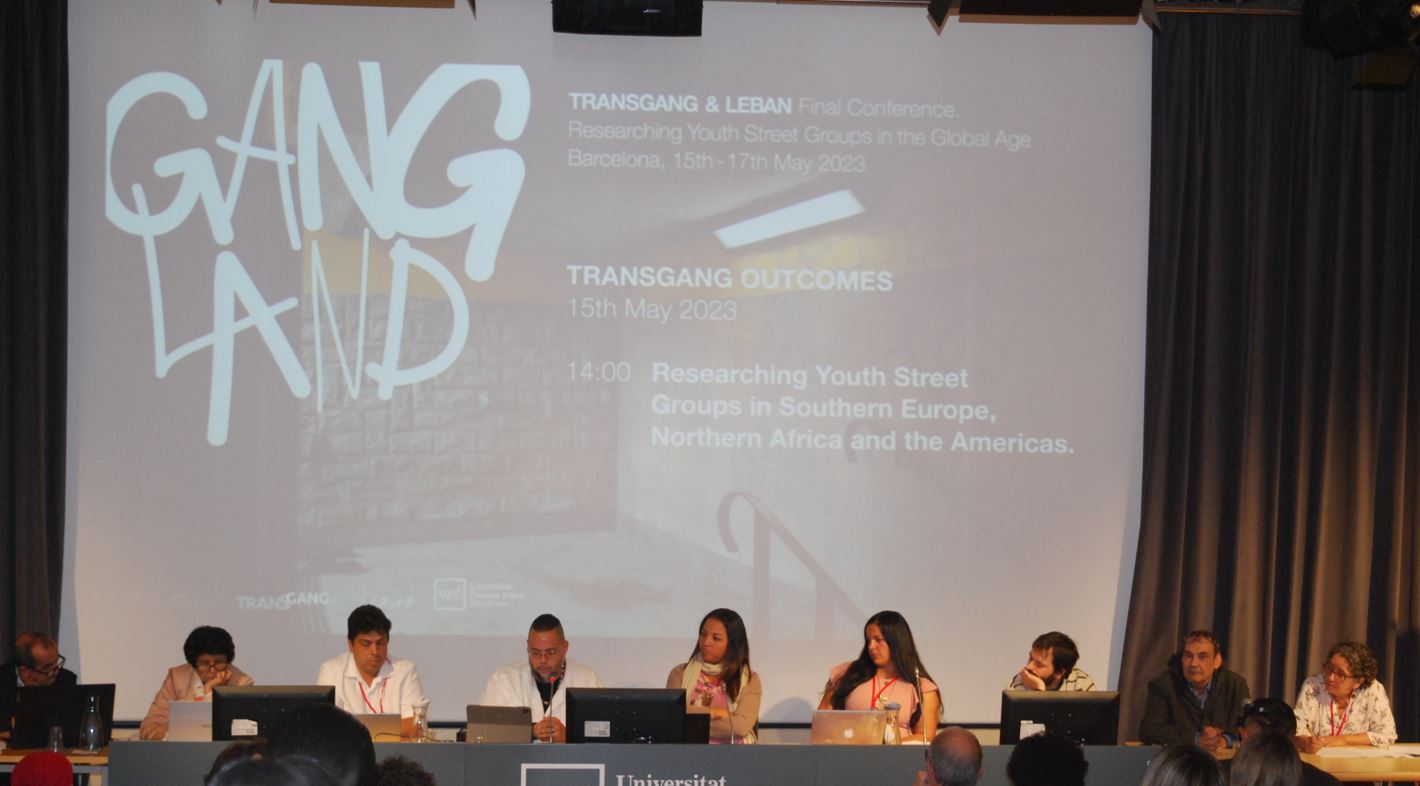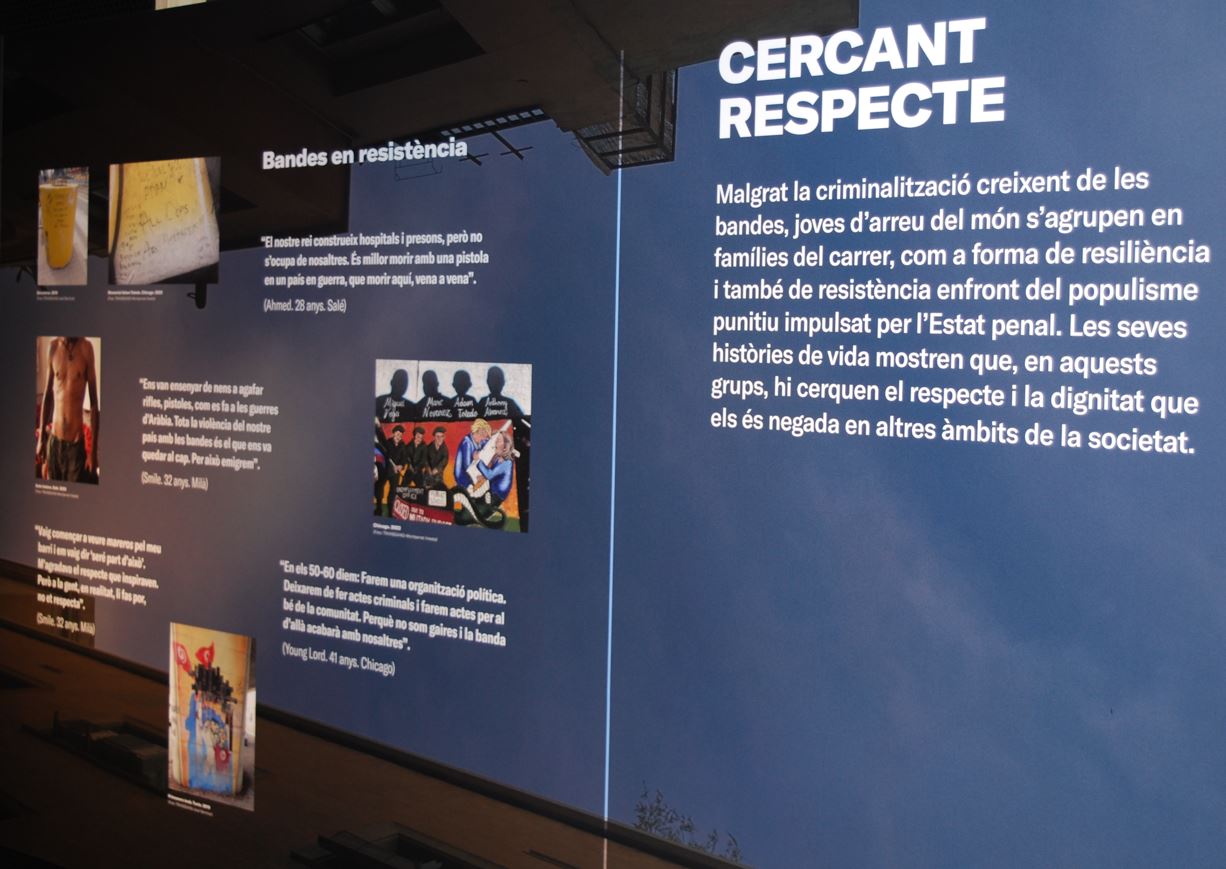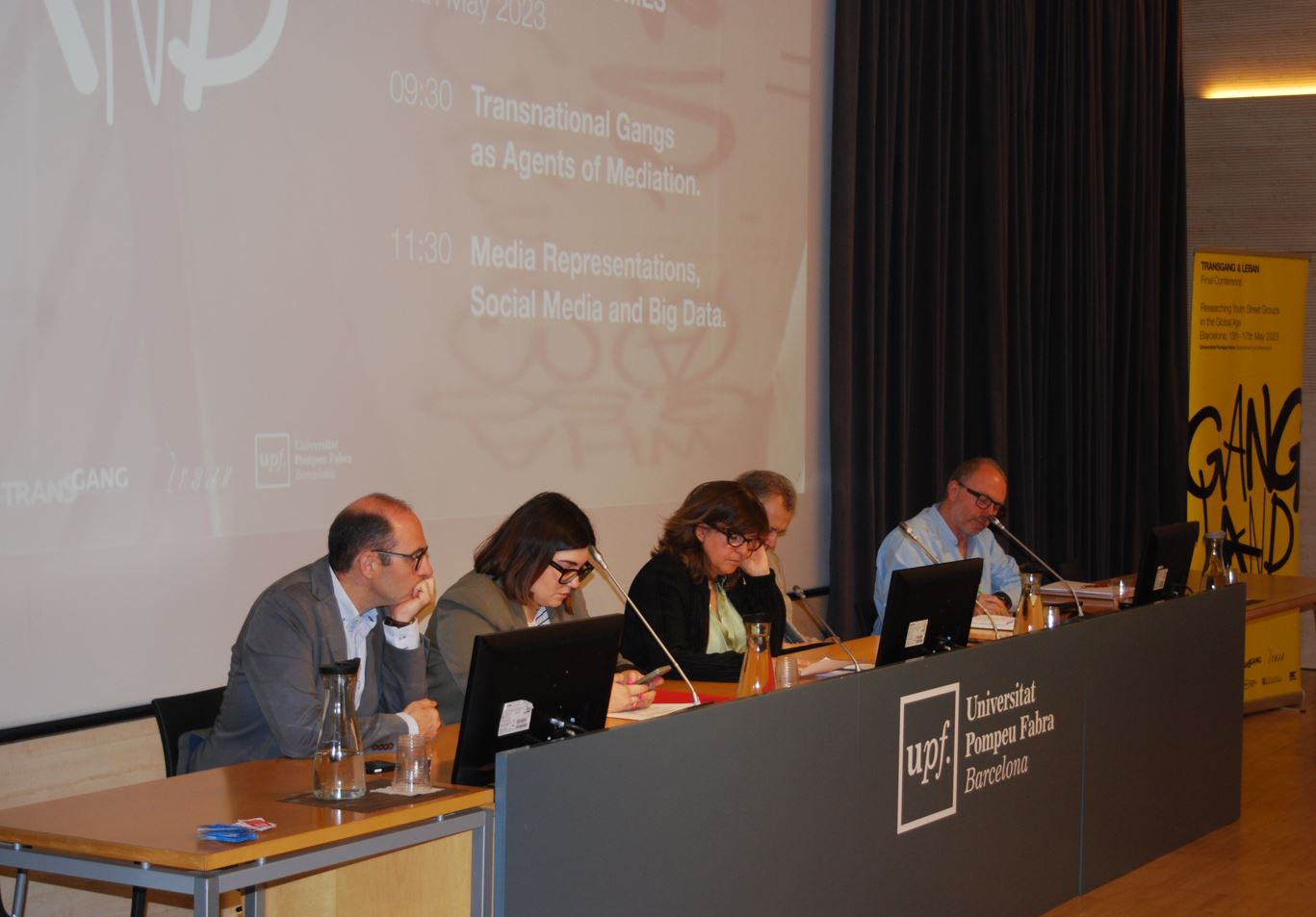Coercive policies are used predominantly with youth gangs despite their lack of efficacy, according to a UPF study
Coercive policies are used predominantly with youth gangs despite their lack of efficacy, according to a UPF study
Coercive policies are used predominantly with youth gangs despite their lack of efficacy, according to a UPF study
Researchers from the transnational project TRANSGANG, led by UPF, are in favour of an intervention model which prioritises mediation and prevention. The results of the project, which has researched youth gangs in southern Europe, north Africa and the Americas, is being presented at a research congress on the Poblenou campus this week.

Over the past decade, in different cities and countries around the world, the style of intervention by government authorities into youth gangs has tended towards authoritarian policies, centred on police action and security. Furthermore, the austerity policies adopted as a result of the 2008 financial crisis have caused a reduction in the number of social and educational workers who promote prevention and mediation with these young groups in various European cities. These are some of the principal findings of the transnational research project TRANSGANG, led by UPF, which, over the last five years, has been implemented in twelve cities in the south of Europe, north Africa and the Americas, with EU funding. The project suggests subverting precisely this tendency in order to promote public policies with youth gangs which prioritise mediation, prevention and social work.
The results of the TRANSGANG project, financed by the EU Horizon 2020 programme with a European Research Council Advanced Grant, will be presented at a research congress taking place at the UPF's Poblenou campus from Monday to Wednesday this week. In this congress, the results of a second research project on the same theme, LEBAN, have also been presented, which focused on analysing experiences of the legalisation of youth gangs (in the form of associations) in some regions of Spain and Latin America with funding from the National Research Agency. The lead researcher of both projects is Carles Feixa, lecturer from the Department of Communication at UPF.
Global policies and transnational youth gangs
The TRANSGANG project recommends that policies for dealing with the youth gang phenomenon must be planned globally, because many gangs have taken on a transnational character, something that has been facilitated by the Internet and digital technologies. Neither can such policies be designed from a patriarchal perspective – in a western sense – but rather from a perspective which takes into account the plurality of youth gangs, according to the local context where they are active. In the TRANSGANG project, the experiences of youth groups in the following southern European cities were analysed: Barcelona, Madrid (Spain), Marseille (France) and Milan (Italy). The north African cities that were analysed were Rabat (Morocco), Algiers (Algeria), Djendel (Algeria) and Tunis (Tunisia). In the Americas, they examined gangs in Medellín (Colombia), San Salvador (El Salvador), Santiago de Cuba (Cuba) and Chicago (USA):
Commenting on the results of the study, the lead researcher of the TRANSGANG project, Carles Feixa, states "The TRANSGANG project has allowed us to compile successful experiences with the participation of young gang members in the twelve cities we researched, which demonstrates that exclusively punitive measures do not work and that they must be combined with inclusive measures based on mediation".

White paper drafted about public policies on youth gangs
A white paper based on the TRANSGANG project's conclusion has been drawn up with recommendations for policies and public community intervention measures. According to the researchers, the triangular model based on the disregard, imprisonment and stigmatisation of youth gangs must be abandoned in favour of one based on the following three principles: greater visibility; social recognition; and their proactive participation in prevention and mediation processes. According to the research team, the existing model can be counter-productive as it distorts the relationship between institutions and local communities where the youth gangs are active, something which makes it impossible – or very difficult – to engage in mediation processes and which can cause an escalation of violence.
Whereas the first model is punitive, exclusive, reactive and is based on the monopoly of state force in the pursuit of short-lived results, the second relies on mediation, is inclusive and preventative and is based on working in collaboration with administrations and different community agents (members or ex-members of youth gangs or NGOs, for example). It is also more sustainable and efficient from a medium and long-term perspective. This model should include a gender perspective and encourage women's participation in the mediation processes.
The researchers clarify that the transition from the existing model to the latter one does not mean eliminating police action – which is still necessary in some cases –, but rather the coercive approach should no longer be the main focus, in order to bring social intervention clearly to the fore. They recommend increasing social work among young people in order to create spaces which facilitate their transition into adult life and dissuade them from following in the steps of street youth gangs. They also point out that in designing their intervention programmes with the youth gangs -which have a limited duration-, the administrations would need to generate positive dynamics which could be sustained autonomously once the public funding has run out. Another of the proposals is to take advantage of some of the members and ex-members of these youth gangs (positive leaders) so that they might intervene in mediation processes.
Both of the youth gang intervention models described above are associated with two different types of narratives and discourses about youth gangs. The coercive model is linked to a stereotypical discourse, which stigmatises and is dualistic, setting "the good" (state force) against "the bad" (the youth gangs). The preventative mediation model is associated with a rigorous, contextualised and pluralist discourse. For this reason, the research group supports the more pluralist, mediation discourse which values the success stories of mediations and not purely cases of violence.
Four documentaries about the Transgang project youth gangs
The Transgang research team also instigated the making of four documentaries to tell the story through the eyes of youth gangs in the cities included in the scope of the research (Barcelona, Rabat, Medellín and San Salvador). These will be screened during the conference. In addition to the documentaries there is also the exhibition From Gangland to Transgang now open this week at the Tallers area gallery on UPF's Poblenou campus, with a selection of images of youth gangs taken during the research project. It will be open until the end of July,
Over a hundred attendees at the final TRANSGANG and LEBAN Conference

In total, around one hundred people took part in the Final Conference of the TRANSGANG and LEBAN projects, among them research staff and social work professionals from all around the world. On behalf of UPF, Eva Pujadas, vice rector of Social Engagement and Sustainable Development; Jordi Balló, director of the Department of Communication, Carles Pont, dean of the UPF Faculty of Communication; and Carles Feixa, lead researcher of the TRANSGANG project, took part in the opening ceremony. Also present was Laia Girós, director of the Catalan Youth Agency.
